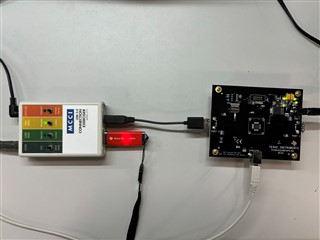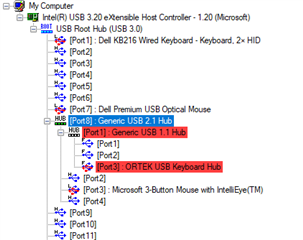Other Parts Discussed in Thread: TUSB4020BI, , TUSB4041PAPEVM, TUSB4020BPHPEVM, TS3USB221
Hello,
We use TUSB4020BI + 2 x TUSB4041I in our system to create 8 downstream ports from USB host controller.
The system is portable and all 8 ports are user accessible.
One requirement of the system is that it should tolerate disconnecting and re-connecting the downstream port devices randomly. This could happen for example when there is a broken cable or connector which make a bad connection due to vibration. And naturally the user can do almost anything with the USB devices, which the system should tolerate to some extend as well.
To test this requirement, we have an automated test system which disconnect and re-connect USB DP/DM pair randomly and monitors that the USB hub's and rest of the system work normally.
The device which is being disconnected and connected back is a USB FS device. USB DP/DM pair is disconnected with electronic USB 2.0 HS signal switch.
What we have noticed about the TUSB4041I hub is that it sometimes disappear from the uplink host and re-connects back when a device on its own downlink port is removed and reconnected repeatedly.
It takes just 20 seconds for this to happen when downstream port device DP/DM pair is disconnected and reconnected randomly with 30-50ms rate. You can see the same behavior on TUSB4041I with lower disconnection rates of the USB device as well, but it just takes longer to see the hub being lost and re-connected.
We tested with different USB hub's like NEC/Renesas uPD720114 and Microchip USB2514B and those stay connected to host in the very same test.
Is there a some known feature in the TUSB4041I which makes this uplink disconnection and reconnection happen in some specific conditions ?






